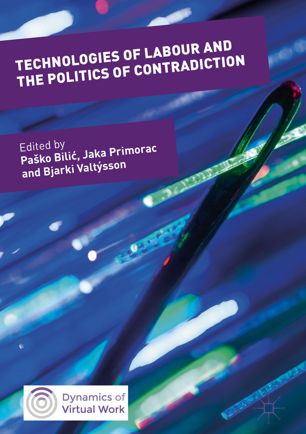

Most ebook files are in PDF format, so you can easily read them using various software such as Foxit Reader or directly on the Google Chrome browser.
Some ebook files are released by publishers in other formats such as .awz, .mobi, .epub, .fb2, etc. You may need to install specific software to read these formats on mobile/PC, such as Calibre.
Please read the tutorial at this link: https://ebookbell.com/faq
We offer FREE conversion to the popular formats you request; however, this may take some time. Therefore, right after payment, please email us, and we will try to provide the service as quickly as possible.
For some exceptional file formats or broken links (if any), please refrain from opening any disputes. Instead, email us first, and we will try to assist within a maximum of 6 hours.
EbookBell Team

4.1
40 reviewsThis book is situated in the nexus between technology, labour and politics. It focuses on contradictions as heuristic devices that uncover struggles, frictions and ambiguities of digitalization in work and labour environments. Topics include contradictions in automation, internet platforms, digital practices, creative industries, communication industries, human interaction, democratic participation and regulation. Three cross-cutting themes can be identified within the diverse chapters represented in the book. First, many authors argue that labour and economic valorisation occur outside of the traditional concept of working space and time. Second, digital technology is not fixed under capital. It is malleable and mouldable. Third, many political tensions are occurring without organized awareness or dissent. The book will, therefore, be of interest to researchers and students in the fields of sociology of work, media studies, cultural studies, gender studies, science and technology studies and Critical Theory as well as to trade-unionists and policy makers.